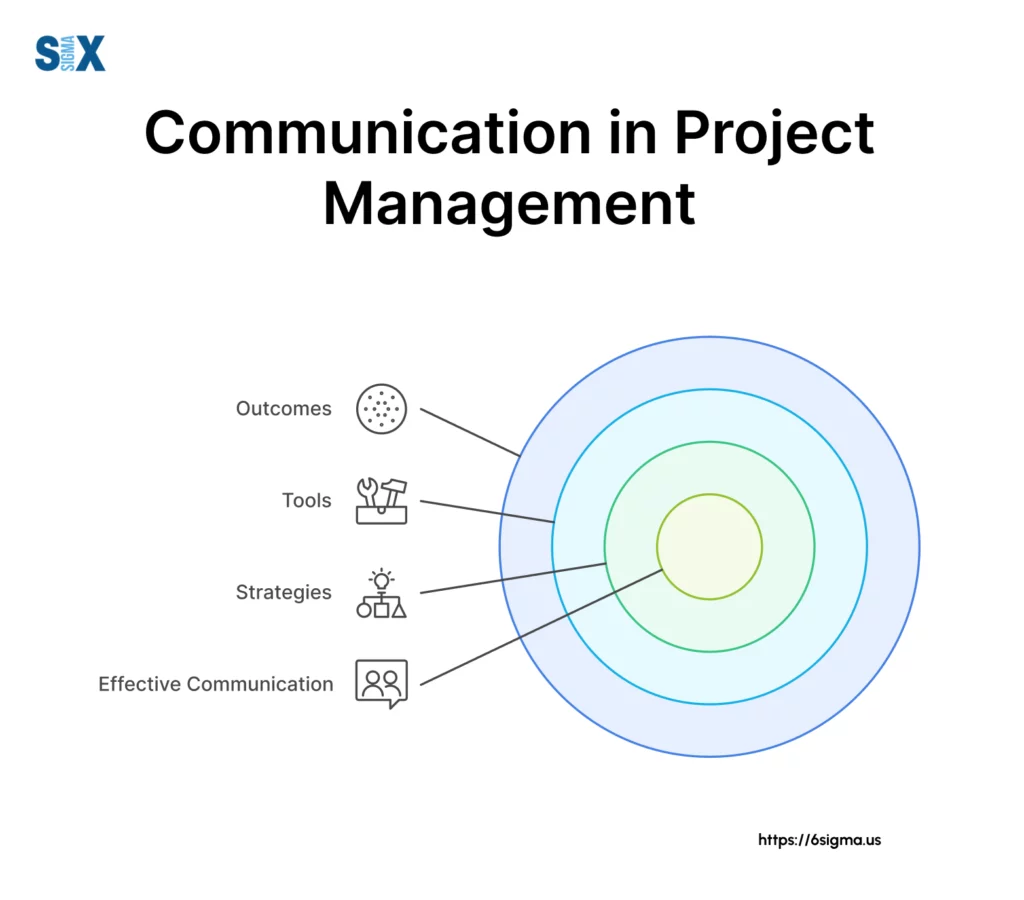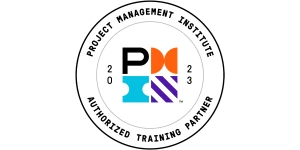Effective Project Management with Communication. Strategies, Best Practices
Communication in project management is extremely important for achieving project success. It is the vital connection that brings together team members, stakeholders, and resources, allowing for seamless teamwork, clear understanding, and timely decision-making.
Even the best-planned projects can fail without proper communication systems and strategies in place, leading to delays, confusion, and potential failures.
Project managers must recognize just how important communication is. They need to prioritize developing detailed communication plans that show strategies, channels, and rules for sharing information throughout the project timeline.
Key Highlights
- Good communication in project management is really important for any project to succeed, making sure everyone understands each other, works as a team, and agrees on goals.
- Project managers must create helpful communication plans that show methods, channels, and rules for sharing information throughout the project timeline.
- Strong communication skills are key for project managers guiding complex team dynamics and meeting stakeholder needs. This includes listening well, clear messaging, and respecting different cultures.
- Addressing communication barriers like language gaps, teams far apart, and organizational divides is important for keeping projects transparent and lowering risks.
- Regularly checking communication, reporting updates, and control systems helps project managers see if communication methods are working and adjust when needed.
What is Communication in Project Management?
Good communication in project management is key for any project to succeed. It makes sure everyone is on the same page, allows people to work together, and prevents misunderstandings and mistakes from happening – helping keep things running smoothly.
Good project communication involves much more than just sharing information. It requires careful planning, setting communication strategies, overcoming barriers, and always improving how you communicate.
With so many people involved in most projects – team members, managers, clients, vendors, etc. – there are sure to be some communication challenges along the way.
That’s why communication skills are seen as very important for project managers. They have to be able to share goals, responsibilities, progress updates, and important information through different communication tools and techniques.

Project Communication Planning
A critical first step in managing communications for any project is to develop a comprehensive communication plan.
The project communication plan outlines how information will be disseminated throughout the project lifecycle to all stakeholders. It defines the communication requirements, channels, frequency, format, and responsibilities.
The key components of a project communication plan typically include:
Communication Requirements Analysis – This involves determining the information needs of the different stakeholders involved in the project. What information do they need, at what level of detail, and what is the purpose (for monitoring, decision-making, reporting, etc.)?
Communication Channels/Methods – Based on the requirements, the plan should specify the methods of communicating information such as emails, reports, meetings, presentations, etc. Both formal and informal channels should be considered.
Communication Responsibilities – Clearly assigning roles and responsibilities for who will communicate what information, to whom, how often, etc. This ensures nothing falls through the cracks.
Communication Schedule – Defining timelines and frequency for communication in project management based on milestones or other trigger events. A communication calendar can be developed.
Communication Standards – Establishing standards, templates, and guidelines to maintain consistency in areas like document formatting, terminology used, version control, etc.
Communication Strategies and Best Practices
Effective communication in project management is critical for project success, and implementing the right strategies can make a huge difference. Here are some proven communication strategies and best practices for project managers:
Develop a Communication Management Plan
One of the first steps is developing a comprehensive communication management plan during the planning phase.
This plan should outline the communication requirements, distribution matrix, responsibilities, methods/channels, frequency, and any other relevant details. Having a plan ensures communication is properly strategized from the start.
Tailor Communication Styles
Different stakeholders have different communication needs and preferences. Adapt your communication style based on the audience – executives may prefer high-level summaries while team members need more technical details.
Understanding different communication styles allows you to convey messages most effectively.
Leverage Visual Communication in Project Management
Visual communication tools like diagrams, charts, graphics, and presentations are powerful for clarifying complex information.
They aid comprehension and make data more digestible and memorable. Leverage visual methods when appropriate to enhance written and verbal communication.
Establish Communication Protocols
Clearly define communication protocols and chains to maintain structure. This includes establishing communication channels, meeting cadences, document repositories, issue escalation paths, and more. Protocols reduce chaos and make communication systematic.
Promote Open Communication in Project Management
Foster an environment of open and transparent communication. Encourage feedback loops, and questions, addressing concerns promptly, and sharing information freely. Open communication facilitates trust, collaboration, and surfaces potential risks early.
Use the Right Communication Tools
With many communication tools available, choose the most suitable ones for your project needs – email, instant messaging, online workspaces, video conferencing, etc. The right tools enhance communication efficiency and collaboration.
Lead by Example
As the project manager, lead by example on communication best practices. Respond promptly, communicate consistently and transparently, and treat communication as a top priority. Your behavior sets the tone for the entire team.
Communication Skills for Project Managers
Effective communication is one of the most critical skills for project managers to possess. Project managers must be able to convey information, instructions, and expectations to team members, stakeholders, vendors, and others involved in the project.
Strong communication skills help ensure everyone is on the same page and working towards the same goals.
Some key communication skills that are essential for project managers include:
Active Listening – Project managers must be able to actively listen to team members, stakeholders, and others to fully understand their needs, concerns, and perspectives.
Active listening involves giving the speaker your full attention, avoiding interruptions, and asking clarifying questions.
Clear and Concise Communication – When providing updates, instructions, or other information, project managers need to communicate in a clear, concise, and easily understandable manner. The ability to synthesize complex information into simple terms is invaluable.
Written Communication – Much project communication happens through emails, reports, memos, and other written forms. Project managers must be skilled writers who can convey technical details and nuanced information effectively through the written word.
Verbal Communication – From leading meetings to providing impromptu updates, strong verbal communication abilities allow project managers to articulate ideas, expectations, and decisions confidently and persuasively.
Visual Communication – Using visual aids like charts, diagrams, and presentations can greatly enhance a project manager’s ability to communicate complex information in an easy-to-understand way.
Negotiation and Conflict Resolution – Projects often involve competing priorities, limited resources, and differing viewpoints. Skilled project managers can negotiate compromises and resolve conflicts through strong communication tactics.
Cross-Cultural Communication – In today’s global workforce, project managers must be able to bridge cultural differences and communicate effectively with culturally diverse teams and stakeholders.
Communication Monitoring, Control, and Reporting
Effective communication in project management requires ongoing monitoring, control, and reporting throughout the project lifecycle.
As projects progress, communication needs can change, new stakeholders may get involved, and issues or risks related to communication can emerge. Having a robust process for monitoring, controlling, and reporting on communication is essential.
Communication Monitoring
Communication monitoring involves regularly assessing the effectiveness of communication activities against the communication management plan. This includes:
- Tracking communication metrics like the number/type of communications sent, open rates, feedback received, etc.
- Soliciting input from stakeholders on whether their communication needs are being met
- Identifying any breakdowns or gaps in the communication flow
- Monitoring communication risks and issues that arise
The project manager and team should review communication monitoring data frequently to identify any areas that need adjustment or corrective action.
Communication Control
Based on the monitoring findings, the communication approach may need to be controlled or updated over time. This could involve:
- Revising communication methods, channels, or frequencies
- Clarifying roles and responsibilities around communication activities
- Implementing new communication technologies or tools
- Increasing training on communication skills
- Addressing any identified risks, issues, or deficiencies
Formal change control processes should be followed for any major updates to the communication management plan.
Communication Reporting
Regular reporting on communication activities and effectiveness is important for transparency and continuous improvement. Key reporting components include:
- Communication metrics and performance data
- Stakeholder feedback and satisfaction levels
- Communication risks, issues, and corrective actions taken
- Lessons learned and best practices around communication
- Recommendations for communication on future projects
Both formal reports and informal updates should be provided to the project team, sponsors, and other key stakeholders. This ensures communication remains a focus area and allows for accountability.
Overcoming Communication Barriers
Effective communication is critical for project success, but it doesn’t come without challenges. Project managers must be able to identify and overcome potential communication barriers throughout the project lifecycle.
Some common communication barriers in projects include:
Cultural Differences: Projects today often involve team members from diverse cultural backgrounds. Cultural norms around communication styles, hierarchies, directness versus indirectness, and attitudes toward conflict can lead to misunderstandings.
Physical Barriers: Remote team members, virtual meetings, and geographically dispersed teams make it harder to pick up on non-verbal cues and build rapport. Background noise and technical issues can also hinder clear communication.
Language Barriers: When teams don’t share a common native language, messages can get lost in translation or important nuances may be missed. This can breed confusion and mistrust.
Information Overload: With countless emails, meetings, reports, and other communication channels, it’s easy for important messages to get buried or ignored amidst the noise.
Ambiguity and Assumptions: Unclear requirements, vague updates, and making assumptions instead of asking clarifying questions cause miscommunication and rework.
To overcome these barriers, project managers should:
Establish a Communication Plan: Define communication channels, frequency, owners, and protocols to streamline information sharing.
Foster an Open Environment: Encourage candid discussions, feedback loops, and make it safe for people to surface issues without fear.
Use Multiple Channels: Leverage various communication methods and tools to reinforce key messages and reach all audiences effectively.
Active Listening: Ask questions, paraphrase others’ points, and watch for non-verbal cues to ensure true understanding.
Communication Training: Provide training on cross-cultural communication, virtual meeting etiquette, document writing skills, etc.
Overcommunicate: When in doubt, err on the side of over-communicating important details rather than making assumptions.
Conclusion
Good communication is extremely important for managing projects successfully. Without clear, consistent, and well-thought-out communication, even the most carefully designed projects can quickly go wrong.
By strategically planning and carrying out communication, project managers can keep all stakeholders informed, working towards the same goals.
Developing strong communication skills, using the right tools and methods, and identifying and addressing communication challenges ahead of time are really important parts of managing communication well.
Implementing proven practices like a detailed communication management plan, clear lists of who needs what info, regular update reports and visual aids can further streamline sharing information.
As projects get more complex with remote teams, different communication styles, and cultures, communication planning becomes even more crucial.
Making communication a priority from the early project planning phases through execution, monitoring, and control helps ensure the project succeeds long term. Paying close attention to coordination is key to any project’s success.
SixSigma.us offers both Live Virtual classes as well as Online Self-Paced training. Most option includes access to the same great Master Black Belt instructors that teach our World Class in-person sessions. Sign-up today!
Virtual Classroom Training Programs Self-Paced Online Training Programs






